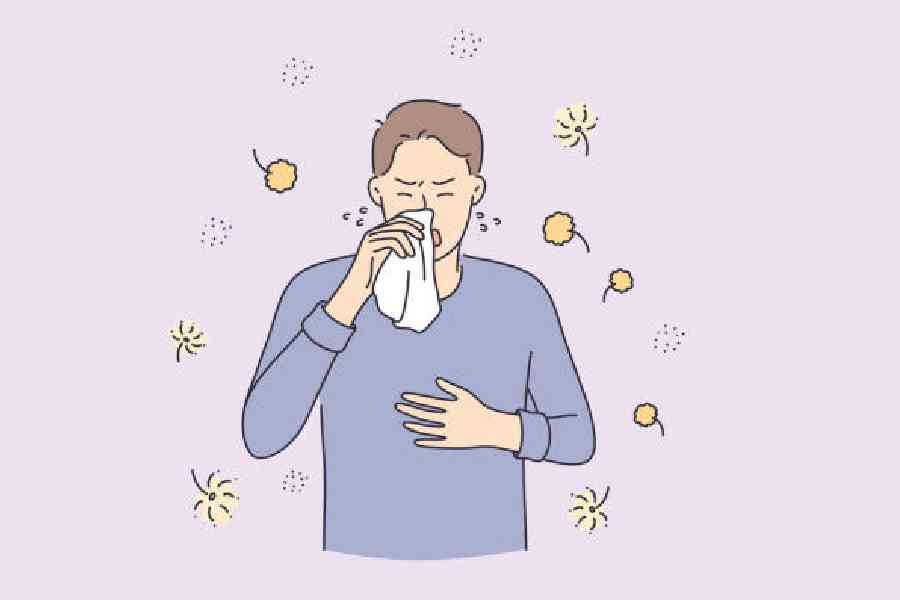Many people experience sneezing or coughing upon waking up, discomfort when exposed to outdoor allergens, or reactions to cooking fumes and pollution. Allergic symptoms can also arise after consuming foods containing preservatives or colourants. In addition to respiratory issues, allergies can affect the skin, leading to itching or rashes. Certain medications, such as antibiotics, as well as insect stings from bees and other bugs, can also trigger allergic reactions.
The cells that line the nose, the bronchi in the lungs and the gastrointestinal tract form part of the immune system that reacts to theses allergens, convinced that they are harmful. They are equated with bacteria, viruses, fungi and other germs. In a person with allergies, the immune system gets confused and thinks a specific chemical is harmful, even though it isn’t. The immune system overreacts and sets in motion a cascading reaction by releasing many chemicals like histamine and immunoglobulin E (IgE) antibodies. This can inflame the skin, sinuses, airways or digestive system. There may be sneezing, coughing, wheezing, headache, rash, abdominal pain, diarrhoea or vomiting.
It’s important to understand that not everybody reacts to these harmless external stimuli. This abnormal response to environmental factors can be genetic and tends to run in families. Many family members may have sneezing, wheezing, coughing and itching. If the reaction stops at this point, there is just discomfort that poses no danger to life.
However, sometimes, the allergy can cause anaphylaxis. This is a severe, life-threatening reaction. It can happen seconds or minutes after exposure. So many antibodies are released that the airways narrow, blocking breathing — and the blood pressure drops suddenly. As the pressure drops, the pulse races and the person can go into shock. This is a medical emergency. It needs immediate treatment with an injection of epinephrine (adrenaline).
Allergies cannot be cured but they can be controlled. If you know you are allergic to certain substances, you can try to avoid them. This is especially true of food. If you are allergic to, say fish, you can choose to not eat it instead of eating it and then treating the reaction.
You could try wearing a mask if you go to dusty, polluted areas. Dust in the house, too, contains mites. Sweeping releases them into the environment so vacuuming is a better option. Bed sheets and pillow covers need to be changed regularly. Burning camphor and the smoke from agarbattis may also trigger allergic coughing and sneezing.
Tobacco smoke can cause watery eyes, sneezing and wheezing not only in the person smoking or vaping but also in bystanders (passive smokers). It is not just the nicotine that causes the problem but also the other chemicals and flavouring agents added to it.
Mosquitoes are a perennial problem in India. Mosquito coils, mats and vaporising liquids are very popular. They can be the unrecognised cause of severe coughing and sneezing.
Allergies, while irritating, are manageable. With the right knowledge and precautions, they can be tackled effectively.
The writer has a family practice at Vellore and is the author of Staying Healthy in Modern India. If you have any questions on health issues please write to yourhealthgm@yahoo.co.in










